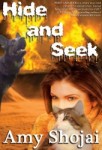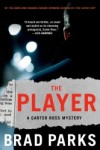

March 3 – 9: “With the huge numbers of books published, is it possible to identify the “best”?
 The awards season is in full swing and ITW Members Brad Parks, Keith Deininger and Amy Shojai are playing along too as they answer the question: With the huge numbers of books published, is it possible to identify the “best”?
The awards season is in full swing and ITW Members Brad Parks, Keith Deininger and Amy Shojai are playing along too as they answer the question: With the huge numbers of books published, is it possible to identify the “best”?
~~~~~
 An award-winning writer and poet, Keith Deininger is the author of The New Flesh, Fevered Hills, Marrow’s Pit, and Ghosts of Eden (Nov. 2014). He grew up in the American Southwest and currently resides in Albuquerque, New Mexico with his wife and their four dogs. He is a skeptic and a bit cynical.
An award-winning writer and poet, Keith Deininger is the author of The New Flesh, Fevered Hills, Marrow’s Pit, and Ghosts of Eden (Nov. 2014). He grew up in the American Southwest and currently resides in Albuquerque, New Mexico with his wife and their four dogs. He is a skeptic and a bit cynical.
 Amy Shojai, CABC is the best-selling award winning author of two dozen pet books and channels her “inner pet” to write dog-viewpoint THRILLERS WITH BITE! Her critically acclaimed debut thriller LOST AND FOUND launched her fiction career in late 2012, followed in 2014 by the sequel HIDE AND SEEK. She specializes in stories that prompt an emotional response in both herself and her readers, and loves to write “furry” medical thrill-rides that leave readers gasping with delight. She’s currently writing SHOW AND TELL, the next book in the series.
Amy Shojai, CABC is the best-selling award winning author of two dozen pet books and channels her “inner pet” to write dog-viewpoint THRILLERS WITH BITE! Her critically acclaimed debut thriller LOST AND FOUND launched her fiction career in late 2012, followed in 2014 by the sequel HIDE AND SEEK. She specializes in stories that prompt an emotional response in both herself and her readers, and loves to write “furry” medical thrill-rides that leave readers gasping with delight. She’s currently writing SHOW AND TELL, the next book in the series.
 Brad Parks is the only author in history to have won the Shamus, Nero and Lefty Awards. A Dartmouth College graduate, he spent a dozen years as a journalist, working for The Washington Post and The Newark Star-Ledger. He is now a full-time author who lives in Virginia with his wife and two children.
Brad Parks is the only author in history to have won the Shamus, Nero and Lefty Awards. A Dartmouth College graduate, he spent a dozen years as a journalist, working for The Washington Post and The Newark Star-Ledger. He is now a full-time author who lives in Virginia with his wife and two children.
- LAST GIRL MISSING with K.L. Murphy - July 25, 2024
- CHILD OF DUST with Yigal Zur - July 25, 2024
- THE RAVENWOOD CONSPIRACY with Michael Siverling - July 19, 2024
